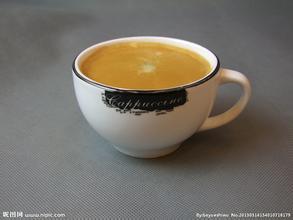Introduction to the Flavor and Taste characteristics of Cuban Crystal Mountain Coffee
There are nickel, cobalt, manganese, chromium, iron and copper with mining value. Among them, nickel reserves are about 6.6 million tons, accounting for 40.27% of the world's total reserves. Manganese reserves of about 7 million tons; chromium reserves are also rich; iron ore reserves of about 3.5 billion tons, mainly distributed in Mount Nippe and Mount Palakoa, is one of the largest reserves in the world; almost all the mountains of Cuba contain copper deposits; Pine Island has tungsten deposits and produces marble. [8]
Petroleum resources
Cuba announced in 2008 that it had proven recoverable oil reserves of 20 billion barrels, mainly in the Cuban exclusive economic zone in the Gulf of Mexico. However, according to the U. S. Geological Survey, Cuba's offshore oil reserves are about 5 billion barrels, no more than 9 billion barrels at most. [8]
Biological resources
Cuba is surrounded by the sea and is rich in fishery resources, with more than 500 kinds of fish. Sea salt can also be produced along the coasts of Guantanamo, Battigiri and Raisabra. The forest area accounts for about 27.5% of the country's land area and is rich in valuable wood such as mahogany, sandalwood and Cuban pine.
Cubans drink coffee culture brought by French immigrants, early coffee has been popular in Cuban upper-class society, Cuban coffee beans are mostly bought by the Japanese and French markets, especially in Japan. Cuban coffee is divided into nine grades, of which Crystal mountain is the highest. Sweet and refreshing, the aroma reaches the nasal cavity, the acidity is delicate, the taste is round and the viscosity is good. Cuba Blue Mountain is a kind of coffee with Caribbean flavor, with fragrant, sweet and delicate smell, its beans are quite large and seem to sell quite well, and its taste is somewhat similar to Jamaica Blue Mountain. It has a full flavor, medium texture and not strong sour taste. It is a very uniform bean, pure and high-quality Cuba Blue Mountain. Its sweet, sour and bitter taste is balanced, sweet, smooth and slightly sour, making it the best in coffee. Comparable to the blue mountains of Jamaica.
Raw beans exported by Cuba have different prices according to different grades, and the first priority buyers are Japan, France, followed by Italy, Spain, Germany, Canada, Switzerland and the Netherlands. Without the influence of the political climate, there is no doubt that Cuba would have become an important supplier of coffee to the United States and Japan in 1748. Coffee was introduced to Cuba from Domiga, and Cuba has been growing coffee ever since. With fertile land, humid climate and abundant Rain Water, Cuba can be called a natural treasure land for coffee cultivation. The suitable natural conditions provide a favorable natural environment for the growth of coffee trees, and coffee is well planted and developed here. In Cuba, the cultivation of coffee is regulated by the state. The best coffee growing area in Cuba is located in the Central Mountains. Because this area not only grows coffee, but also produces quartz, crystal and other precious minerals, it is also known as Crystal Mountain. At present, Crystal Mountain Coffee is synonymous with top Cuban coffee. One of the remarkable features of Crystal Mountain Coffee is that the particles are large, and the bright green Crystal Mountain Coffee with bright beans is very precious. This is mainly for two reasons. The first reason is the economic sanctions imposed by the United States against Cuba and the non-opening up of Cuban imports. The second reason is that at present, Cuban coffee beans are mostly acquired by the French and Japanese markets, especially Japan, so it is difficult to buy coffee beans directly from Cuba. In spite of this, the status of Cuban coffee in the hearts of global coffee lovers can still be compared with Jamaica Blue Mountain Coffee.

Important Notice :
前街咖啡 FrontStreet Coffee has moved to new addredd:
FrontStreet Coffee Address: 315,Donghua East Road,GuangZhou
Tel:020 38364473
- Prev

An introduction to the characteristics of Peruvian organic coffee with elegant and mild sour taste
Peruvian coffee is grown in a planned way, which has greatly increased coffee production. Its rich acidity and mellow smoothness are its most prominent features. Peruvian coffee has a soft sour taste, medium texture, good taste and aroma, and is an indispensable ingredient in the production of comprehensive coffee. Peruvian coffee of outstanding quality, with strong aroma, smooth, layered and rich sweet taste.
- Next

Introduction to boutique coffee with mild taste and taste of Salvadoran coffee
El Salvador's domestic topography is mainly mountainous, plateau, volcanic, known as the country of volcanoes, Santa Ana active volcano 2385 meters above sea level, the highest peak in the country; the northern part of the country is the Lompa Valley and the southern part is the narrow coastal plain. Climatic characteristics all over El Salvador has a tropical climate, with an annual average temperature of 28 ℃; dry season from November to April and rainy season from May to October; coastal and lowland atmosphere
Related
- Detailed explanation of Jadeite planting Land in Panamanian Jadeite Manor introduction to the grading system of Jadeite competitive bidding, Red bid, Green bid and Rose Summer
- Story of Coffee planting in Brenka region of Costa Rica Stonehenge Manor anaerobic heavy honey treatment of flavor mouth
- What's on the barrel of Blue Mountain Coffee beans?
- Can American coffee also pull flowers? How to use hot American style to pull out a good-looking pattern?
- Can you make a cold extract with coffee beans? What is the right proportion for cold-extracted coffee formula?
- Indonesian PWN Gold Mandrine Coffee Origin Features Flavor How to Chong? Mandolin coffee is American.
- A brief introduction to the flavor characteristics of Brazilian yellow bourbon coffee beans
- What is the effect of different water quality on the flavor of cold-extracted coffee? What kind of water is best for brewing coffee?
- Why do you think of Rose Summer whenever you mention Panamanian coffee?
- Introduction to the characteristics of authentic blue mountain coffee bean producing areas? What is the CIB Coffee Authority in Jamaica?

